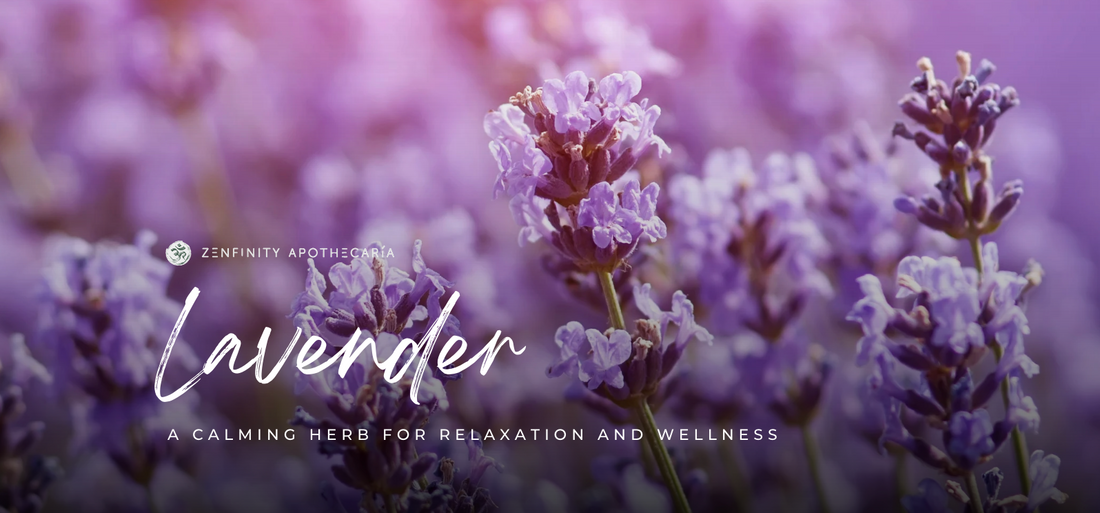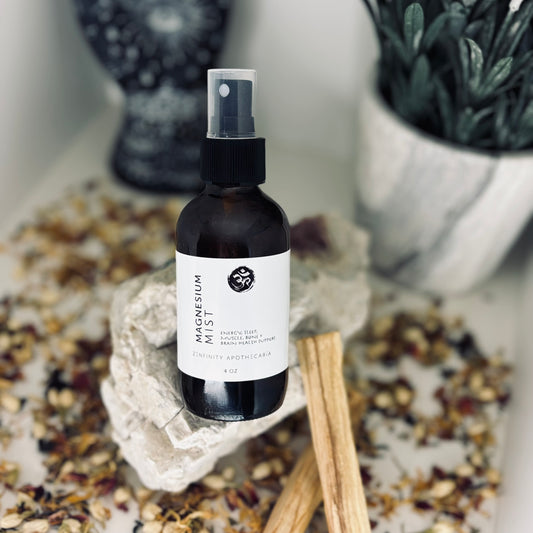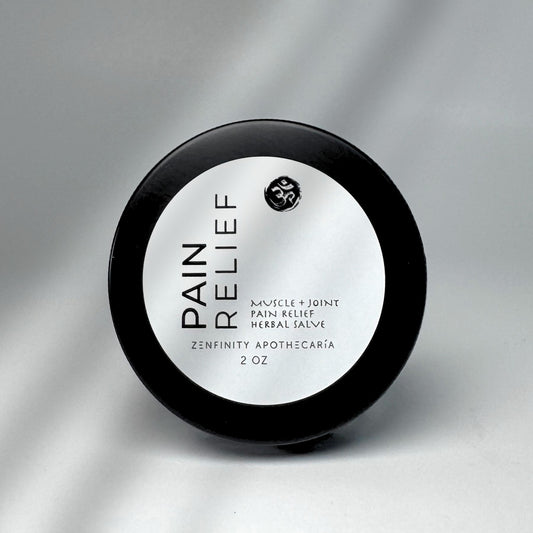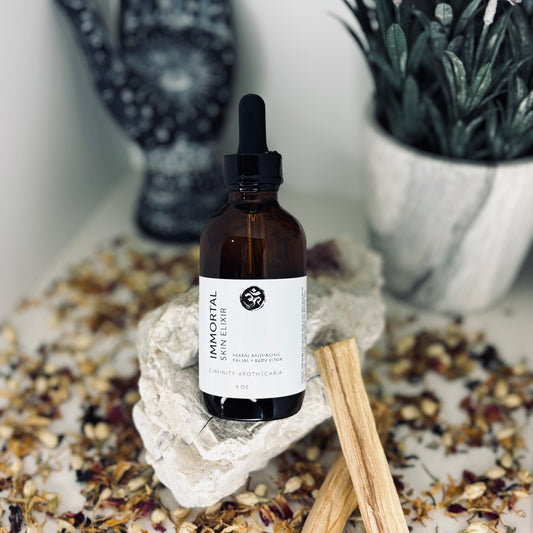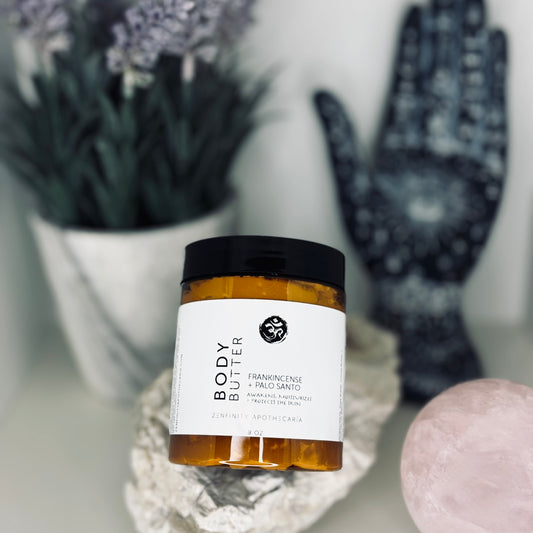Lavender (Lavandula angustifolia) is one of the most beloved and versatile herbs, cherished for its fragrant blooms and soothing properties. Native to the Mediterranean, lavender has been used for thousands of years for its medicinal and aromatic benefits. This herb has a long history in traditional medicine, particularly in calming the mind, promoting relaxation, and improving sleep quality. Lavender is also renowned for its ability to support skin health, relieve anxiety, and enhance emotional well-being.
In this article, we will explore the benefits of lavender, how it can be used in various forms, and the best ways to incorporate it into your wellness routine.
1. Promotes Relaxation and Reduces Stress
Lavender is perhaps best known for its ability to reduce stress and promote relaxation. The herb contains compounds like linalool and linalyl acetate, which have calming effects on the nervous system. Lavender has been shown to reduce the levels of cortisol, the body's primary stress hormone, and enhance the production of serotonin, a neurotransmitter associated with feelings of well-being and happiness.
Whether you’re dealing with everyday stress or a more serious anxiety disorder, lavender can be a gentle and effective solution for calming the mind and easing tension.
How to Use Lavender for Relaxation:
- Lavender Tea: To experience lavender’s calming effects, steep 1–2 teaspoons of dried lavender flowers in hot water for 5–10 minutes. Drinking lavender tea before bed can help promote relaxation and reduce anxiety, making it a perfect evening beverage.
- Lavender Essential Oil (Aromatherapy): Use a diffuser or add a few drops of lavender essential oil to a bowl of hot water and inhale the soothing steam. Alternatively, you can place a drop of lavender oil on your pillow before sleep for a relaxing scent that promotes calmness throughout the night.
- Lavender Tincture: Take a few drops of lavender tincture in a small glass of water to enjoy its calming and stress-reducing benefits.
2. Improves Sleep Quality and Alleviates Insomnia
Lavender has long been used to improve sleep quality and alleviate insomnia. Its sedative properties help relax the body and mind, making it easier to fall asleep and stay asleep throughout the night. Lavender’s ability to soothe both physical and emotional tension makes it particularly helpful for those whose sleep disturbances are linked to stress or anxiety.
Studies have shown that lavender can increase the duration of deep sleep, resulting in more restful and restorative sleep cycles.
How to Use Lavender for Better Sleep:
- Lavender Tea: Drink a cup of lavender tea 30 minutes before bedtime to promote relaxation and improve sleep quality. The gentle, calming effects of lavender can help prepare your mind and body for a peaceful night’s rest.
- Lavender Essential Oil (Aromatherapy): Diffuse lavender essential oil in your bedroom or apply a drop of the oil to your pillow to create a soothing sleep environment. The fragrance will help you unwind and encourage a deeper, more restful sleep.
- Lavender Bath: Add a few drops of lavender essential oil to a warm bath before bedtime for a calming, pre-sleep ritual that can help ease muscle tension and reduce stress.
3. Relieves Anxiety and Emotional Tension
Lavender has proven benefits for reducing anxiety and emotional tension. Its gentle, soothing effects can help individuals dealing with nervousness, unease, or overwhelming emotions. The herb works by influencing the brain’s neurotransmitter system, helping to balance mood and promote a sense of tranquility.
Lavender has been shown to be particularly effective for those who suffer from general anxiety, panic attacks, or mood swings. Its ability to calm the nervous system without causing drowsiness or sedation makes it a safe and natural alternative to pharmaceutical anxiety treatments.
How to Use Lavender for Anxiety Relief:
- Lavender Tea: Sipping on a cup of lavender tea can help calm anxious thoughts and ease feelings of nervousness or tension. It’s an excellent option for moments when you need to unwind after a stressful day.
- Lavender Essential Oil (Aromatherapy): Inhaling lavender essential oil through aromatherapy can help reduce anxiety and provide emotional relief. You can also use it in a rollerball or apply a few drops to your pulse points (wrists, neck) for a calming effect throughout the day.
- Lavender Tincture: A few drops of lavender tincture can be taken to help alleviate anxiety and restore emotional balance.
4. Supports Skin Health and Healing
Lavender is a valuable herb for skin health, thanks to its antiseptic, anti-inflammatory, and antioxidant properties. It can be used to treat minor burns, cuts, and scrapes, as well as conditions like acne, eczema, and psoriasis. Lavender oil is known for its ability to promote healing, reduce redness, and soothe irritated skin.
Additionally, lavender helps balance the skin's oil production, making it useful for both dry and oily skin types. Its antioxidant content also helps protect the skin from free radical damage and premature aging.
How to Use Lavender for Skin Health:
- Lavender Essential Oil (Topical Use): Dilute lavender essential oil with a carrier oil (like coconut oil or jojoba oil) and apply it directly to the skin. This can help reduce inflammation and promote healing of cuts, burns, or blemishes.
- Lavender Tea (Internal Use): Drinking lavender tea regularly can help support overall skin health from the inside out by reducing inflammation and promoting detoxification.
- Lavender Face Mask: Add a few drops of lavender essential oil to your face mask or skincare routine for an added soothing and anti-inflammatory boost.
5. Relieves Headaches and Migraines
Lavender has been shown to be an effective natural remedy for headaches and migraines. Its calming and anti-inflammatory properties can help reduce the intensity of pain and soothe the nervous system. Lavender essential oil, in particular, has been used in aromatherapy to reduce the severity of tension headaches and migraine-related symptoms.
When used topically or through inhalation, lavender can alleviate headache discomfort by promoting relaxation and reducing stress.
How to Use Lavender for Headache Relief:
- Lavender Essential Oil (Aromatherapy): Inhale the scent of lavender essential oil or diffuse it in your living space to help reduce headache pain and alleviate tension.
- Lavender Oil (Topical Use): Apply diluted lavender essential oil to your temples, neck, or the base of your skull to soothe headache pain and promote relaxation.
- Lavender Tea: Drinking lavender tea can help reduce the overall stress that often triggers headaches, promoting relaxation from within.
6. Improves Digestion and Eases Nausea
Lavender is also beneficial for digestive health, particularly when it comes to easing nausea, indigestion, and bloating. The herb has antispasmodic properties that help relax the muscles of the digestive tract, easing discomfort and promoting smoother digestion. Lavender is often used to alleviate nausea caused by motion sickness, stress, or pregnancy.
How to Use Lavender for Digestive Health:
- Lavender Tea: Sip on a cup of lavender tea after meals to soothe the stomach and ease digestive discomfort. It can also help alleviate nausea or bloating.
- Lavender Oil (Aromatherapy): Diffusing lavender essential oil can help reduce nausea and calm an upset stomach by promoting relaxation.
How to Incorporate Lavender into Your Routine
Lavender is a versatile herb that can be used in a variety of forms to support relaxation, skin health, emotional well-being, and more. Whether you prefer it as a tea, essential oil, or in topical preparations, lavender offers a range of applications that can fit seamlessly into your daily routine.
Best Practices for Use:
- For relaxation and stress relief: Use lavender essential oil in a diffuser or drink lavender tea regularly to reduce stress and promote relaxation.
- For better sleep: Incorporate lavender into your bedtime routine, either through a calming cup of tea, a few drops on your pillow, or a soothing lavender bath.
- For skin health: Apply diluted lavender essential oil topically to treat minor burns, cuts, or blemishes, or enjoy lavender tea for overall skin health.
- For headache relief: Use lavender oil topically or inhale it to relieve headache and migraine pain.
As with any herbal remedy, it’s important to consult a healthcare provider, especially if you are pregnant, nursing, or on medication, before incorporating lavender into your wellness routine. When used properly, lavender can be a calming and healing herb that promotes relaxation, improves skin health, and supports overall well-being.

